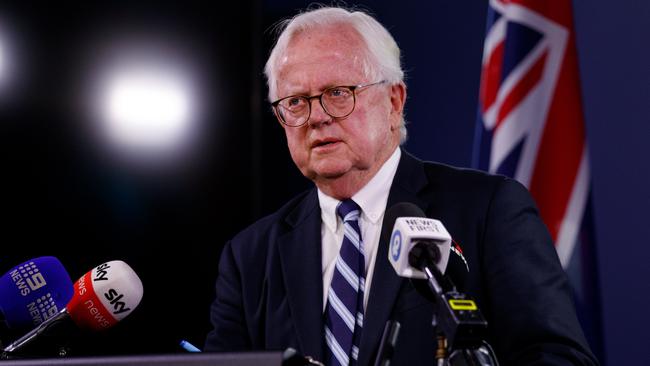NSW casino regulator forces board reform at troubled Star
The powerful NSW casino regulator will require a major restructuring of Star Entertainment’s board structure as part of the troubled casino group’s remediation reforms.

The powerful NSW casino regulator will require a major overhaul of Star Entertainment’s board structure as part of the company’s remediation reforms.
The NSW Independent Casino Commission will ask Star to decentralise decision making, with the new independent boards responsible for each of its properties in Sydney, the Gold Coast and Brisbane to be set up alongside the group-level board.
The NICC believes these boards will be better able to deal with regulators in both NSW and Queensland, and avoid the previous situation where power was consolidated at the group level, resulting in “dysfunctional” decision making.
The board reform forms part of a suite of changes the NICC is requiring before Star can be considered suitable to retain its flagship casino licence.
The NICC on Thursday announced the extension of the suspension of Star’s licence until at least March following the Bell II inquiry, which found continuing regulatory failures by the group. NICC-appointed manager Nick Weeks will continue to have oversight of its casino and the company will be fined $15m.
NICC chief commissioner Philip Crawford said the inquiry had identified continuing compliance failures and operations at The Star that fell far short of suitability to hold a casino licence. But Mr Crawford said taking Star’s licence away would cripple the company and have serious impacts that would ripple through the economy. Stripping the casino group of the licence would not only affect its 9000 staff, but connected businesses.
The NICC is banking on new Star chief executive Steve McCann to improve cultural deficiencies that are hindering the company’s efforts to improve corporate governance.
Last year, The Star commissioned a special report from the Sydney-based Ethics Centre that identified a set of negative “shadow values” common inside the company.
According to the Ethics Centre, shadow values are “expression of the unstated operating culture of an organisation”.

According to the report, which has not been released publicly, these values included “profit matters most”, “just get it done”, “play politics to stay alive” and “stay in your lane”.
The NICC now believes decentralised decision making through independent boards would avoid the poor corporate governance identified in the Bell II inquiry this year.
The inquiry found a “continued concentration of power and responsibility” at the group level rather than at each individual property.
The NICC will now seek to ensure local boards have a majority of independent directors and a minimum frequency of meetings.
Previously, the board of the Sydney casino only met to approve financial statements instead of acting as an operational board. This diluted oversight of the Sydney operations.
The inquiry was told Star was “leaderless and depleted” as it faced growing regulatory and financial challenges that meant it was susceptible to criminal exploitation as it lagged more than a year behind in remediation efforts.
The inquiry also heard that Star had an antagonistic attitude towards regulators including spying on the diary entries of Mr Weeks, including his meetings with lawyers, as part of a “process of preparing for war” with NICC. The NICC said the evidence from the inquiry showed the company was not moving quickly enough to reform its culture.
Investors close to Star said this week’s decision by the NICC not to remove Star’s licence entirely was recognition that the new management team under Mr McCann could bring the company back from the brink.
Mr McCann, the former boss of rival Crown Resorts, has been credited with not only finalising a financial rescue package for the company last month, but implementing a new era of co-operation with regulators, including the NICC and Queensland’s Office of Liquor and Gaming Regulation.
Mr McCann is looking to slash up to 350 jobs and offload hotels and other assets after warning the company was “on its knees”.
The Star announced a $200m financial rescue package last month but faces “significant near-term liquidity requirements” including the funding of ongoing remediation and transformation activities. The NICC will continue to monitor both the remediation efforts and finances of Star as the regulator moves to make a final decision on whether it can retain its Sydney licence.
No time frame for that return to suitability has been announced and is believed the NICC still has major concerns about Star’s financial position.







To join the conversation, please log in. Don't have an account? Register
Join the conversation, you are commenting as Logout